Get to know some of our Elevate Mentors! This all-star studded cast possesses a range of incredible skills and experience to take your career in conservation to the next level.
Paul Bubelis
Executive Director (and founder), Sustainability Network
Expertise: Non-profit leadership, program management, capacity building
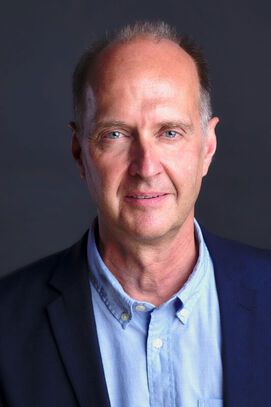
Paul co-founded the Sustainability Network and has led the organization since inception. He is also a founding Director of Green Economy Canada and sits on the Policy Committee for the Ontario Nonprofit Network and advisory committees at the University of Guelph, Toronto Metropolitan University and the Canadian Centre for Nonprofit Digital Resilience.
Paul is the recipient of a 2023 Clean50 Lifetime Achievement award.
Prior to his work at Sustainability Network, he led the Ontario Environment Network and spent 5 years at Environment Canada. Paul holds a biology degree from the University of Guelph and a MSc from the University of Toronto.
Paul is the recipient of a 2023 Clean50 Lifetime Achievement award.
Prior to his work at Sustainability Network, he led the Ontario Environment Network and spent 5 years at Environment Canada. Paul holds a biology degree from the University of Guelph and a MSc from the University of Toronto.
Hannah Dean
Organizing Director, Nature Canada
Expertise: Strategic partnership development, organizing/campaigning, public events
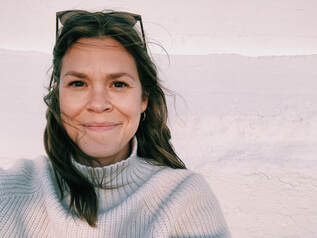
Hannah Dean has over a decade of experience in senior management positions, and has most recently served as the Organizing Director of Nature Canada. The last five years has seen her leading a team of campaigners as they work to mobilize a network of over 1200 nature based organizations across Canada to take action for biodiversity. Her extensive background in leadership development, strategic partnerships, capacity building, budget management and events coordination has enabled her to deliver on key moments for nature such as the organization of the Nature Canada Nature Bus tour in the lead up to the United Nations Conference of the Parties on biodiversity last December.
Leading the largest team at Nature Canada, Hannah’s success comes from coaching and developing those around her to excel in what they are determined to achieve, while maintaining a birds eye view on the overall execution of the network strategy.
Previously, Hannah worked for lululemon athetica for nearly a decade, with several years in Stockholm, Sweden bringing the Canadian brand to the northern European market. In her spare time, Hannah enjoys getting out into the woods or the lake beside her rural cabin home no matter the season.
Leading the largest team at Nature Canada, Hannah’s success comes from coaching and developing those around her to excel in what they are determined to achieve, while maintaining a birds eye view on the overall execution of the network strategy.
Previously, Hannah worked for lululemon athetica for nearly a decade, with several years in Stockholm, Sweden bringing the Canadian brand to the northern European market. In her spare time, Hannah enjoys getting out into the woods or the lake beside her rural cabin home no matter the season.
Dr. Nusha Keyghobadi
Professor, University of Western Ontario
Expertise: scientific writing, post-secondary teaching, conservation research, science outreach
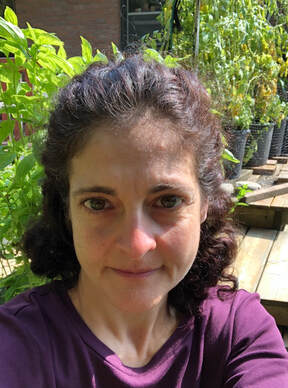
I’m a Professor in the Biology Department at Western University. My research focuses on genetic diversity: where does genetic diversity come from, and how is it maintained or lost over time? I focus particularly on how landscape structure and climate/weather affect genetic variation in insects. I also work on conservation genetics of at-risk butterflies and am currently involved in a collaboration focused on conservation and restoration of the Mottled Duskywing in Ontario.
I teach courses in Environmental Biology, Molecular Ecology and Landscape Genetics. I’ve also undertaken administrative university work, including being Director of Western’s Centre for Environment & Sustainability, and the Acting Chair of the Biology Department.
I’m happy to mentor anyone interested in pursuing a career in scientific research, teaching, and academia. I’m also happy to provide advice to those considering undergraduate or graduate programs, especially in Biology or Ecology.
I teach courses in Environmental Biology, Molecular Ecology and Landscape Genetics. I’ve also undertaken administrative university work, including being Director of Western’s Centre for Environment & Sustainability, and the Acting Chair of the Biology Department.
I’m happy to mentor anyone interested in pursuing a career in scientific research, teaching, and academia. I’m also happy to provide advice to those considering undergraduate or graduate programs, especially in Biology or Ecology.
Jenna Siu
Wildlife Recovery Biologist, Environment and Climate Change Canada
Expertise: land conservation and stewardship, fieldwork, public outreach, non-profits, government
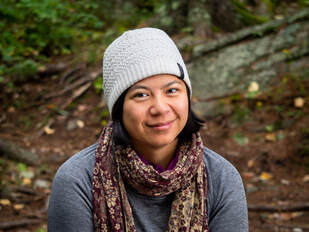
I did not grow up spending a lot of time outdoors and in nature. I came to appreciate nature later in life than most, primarily through my academic experiences. These experiences continue to shape my perspective and approach to my work today. They have taught me to be a critical thinker, open to feedback and how to be a better communicator.
Throughout my career so far I've been fortunate to work with several different taxon (e.g., plants, herps, insects), in various landscapes in Ontario and Canada and for different conservation organizations and projects. Since my MSc, I have mostly worked for not for profit conservation organizations and have first-hand experience with some of the many benefits and challenges to working in this sector.
I attribute much of my success to the people I've connected with over the years who have taught me not just the technical skills and knowledge for doing conservation work, but also how important it is to have a positive support system. I hope to pay forward the kindness that others have shown me.
Throughout my career so far I've been fortunate to work with several different taxon (e.g., plants, herps, insects), in various landscapes in Ontario and Canada and for different conservation organizations and projects. Since my MSc, I have mostly worked for not for profit conservation organizations and have first-hand experience with some of the many benefits and challenges to working in this sector.
I attribute much of my success to the people I've connected with over the years who have taught me not just the technical skills and knowledge for doing conservation work, but also how important it is to have a positive support system. I hope to pay forward the kindness that others have shown me.
Angela Van Niekerk
Wetland Specialist, Ausable Bayfield Conservation Authority
Expertise: wetland design and restoration, vegetation identification, tall grass prairie restoration and native plant use in restoration
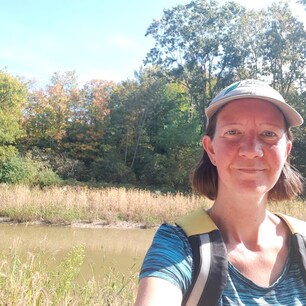
I have been working at Ausable Bayfield Conservation Authority (ABCA) for 17 years. I started out doing water sampling, benthics assessments and assisted with mussel and fish surveys.
ABCA partnered with the Stewardship Councils, Ducks Unlimited Canada, and Ministry of Natural Resources and Forestry, and Landowners in 2008 to develop a wetland restoration program. I have had, and still use many mentors that helped to make this restoration program successful at ABCA. We have completed 125 wetland restorations to date! I can offer hands on experience in any of the following daily tasks. We work with landowners and write funding applications. I provide site visits, survey if needed, and design wetlands. I hire and oversee contractor’s work. We GPS the wetland once completed, spread native seed and plant native plants on bare soils. We coordinate public planting events. We post on social media to communicate importance of wetlands and what we are doing.
I monitor wetlands to make sure they are functioning and for phragmites. I report to funders and coordinate budgets for wetland restoration projects with up to 10 funders. I also help education staff occasionally with some wetland games and activities, pond studies, and bug hunts for student outdoor programs.
ABCA partnered with the Stewardship Councils, Ducks Unlimited Canada, and Ministry of Natural Resources and Forestry, and Landowners in 2008 to develop a wetland restoration program. I have had, and still use many mentors that helped to make this restoration program successful at ABCA. We have completed 125 wetland restorations to date! I can offer hands on experience in any of the following daily tasks. We work with landowners and write funding applications. I provide site visits, survey if needed, and design wetlands. I hire and oversee contractor’s work. We GPS the wetland once completed, spread native seed and plant native plants on bare soils. We coordinate public planting events. We post on social media to communicate importance of wetlands and what we are doing.
I monitor wetlands to make sure they are functioning and for phragmites. I report to funders and coordinate budgets for wetland restoration projects with up to 10 funders. I also help education staff occasionally with some wetland games and activities, pond studies, and bug hunts for student outdoor programs.
Kim Statham
Director, City of Toronto, Urban Forestry
Expertise: ecological restoration, municipal government, community engagement, strategic urban forestry management
Providing strong, responsible and spirited leadership for the municipal government for over twenty years, Kim is the Director, Urban Forestry, City of Toronto. In this position, Kim is responsible for leading the largest municipal strategy in the country to plan, protect and expand Toronto’s tree canopy.
Kim has extensive experience in all elements of parks and forestry planning and management. Her past range of responsibilities included the design and implementation of ecological restoration projects, project management of the design and build of parkland trails to large scale natural area master planning.
Kim is dedicated to fostering a connection between people and the natural environment.
Kim has extensive experience in all elements of parks and forestry planning and management. Her past range of responsibilities included the design and implementation of ecological restoration projects, project management of the design and build of parkland trails to large scale natural area master planning.
Kim is dedicated to fostering a connection between people and the natural environment.
Cassie Barker
Senior Program Manager, Toxics, Environmental Defence Canada
Expertise: environmental health, federal policy, campaigns, communications
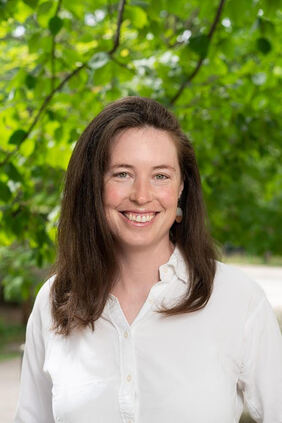
Cassie Barker is the Toxics Senior Program Manager with Environmental Defence Canada. She holds a B.A in Environment and Development and M.Sc. in Capacity Development and Extension from the University of Guelph. Cassie is passionate about protecting communities, kids and water, and has spent the last two decades working on environmental research, justice and advocacy, with a focus on environmental health.
Samantha Casey
Communications & Engagement Coordinator & Sustainability Coordinator, University of Guelph Sustainability Office & Hospitality Services
Expertise: community engagement, environmental communications, project management, grant writing and fundraising
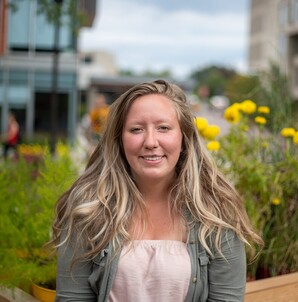
Samantha Casey has a unique joint role at the University of Guelph. She is the Communications and Engagement Coordinator at the UofG Sustainability Office and the Sustainability Coordinator for Hospitality Services. Over the past few years, her work has focused on co-designing and developing action-oriented projects that improve the campus' environmental, social, and economic sustainability. From a sliding-scale food market to a native plant seed orchard and a campus biodiversity inventory, Samantha has been involved in developing and managing various projects spanning various topics.
Samantha has extensive experience in communications, community engagement, grant writing, and project coordination. She is passionate about biodiversity conservation, environmental education and youth empowerment.
Outside of work, Samantha co-founded the Community Climate Council, a youth-founded climate organization, serves as the chair of the Guelph Tool Library's fundraising committee, and is the community coordinator for the Canadian Youth Biodiversity Network. As someone who has had several incredible mentors, Samantha is passionate about supporting mentees in their journeys however best she can.
Samantha has extensive experience in communications, community engagement, grant writing, and project coordination. She is passionate about biodiversity conservation, environmental education and youth empowerment.
Outside of work, Samantha co-founded the Community Climate Council, a youth-founded climate organization, serves as the chair of the Guelph Tool Library's fundraising committee, and is the community coordinator for the Canadian Youth Biodiversity Network. As someone who has had several incredible mentors, Samantha is passionate about supporting mentees in their journeys however best she can.
David Borish
Creative Director/Research Associate, Torngat Wildlife & Plants Co-Management Board
Expertise: documentary film, community co-creation, social science research, wildlife conservation
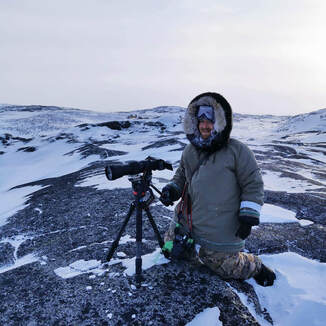
David Borish is a social and health researcher and visual artist pushing the boundaries of using audio-visual methodologies to explore and understand relationships between humans and the environment. His work sits at the interface of documentary film, public health, cultural and social wellbeing, wildlife conservation, and audio-visual research methods.
David is the director of HERD, a research-based documentary film all about a 99% decline of a caribou population and what that means for community well-being in Labrador, Canada. The film has been broadcasted on CBC in Canada, has been screened at more than 15 international film festivals.
David is currently working with the Torngat Wildlife, Plants and Fisheries Secretariat, as well as other wildlife co-management boards across the Eastern Arctic, to co-create visual media about wildlife stewardship and Indigenous culture. This includes a new educational docuseries about Inuit knowledge of polar bears in Nunatsiavut, Nunavik, Nunavut, and Greenland. Previously, he has worked as a visual educator for National Geographic Student Expeditions in Iceland and Alaska, and has led a variety of visual-based projects about environmental and social sustainability in Peru, Nepal, Kenya, Malaysia, and other parts of the world.
David is the director of HERD, a research-based documentary film all about a 99% decline of a caribou population and what that means for community well-being in Labrador, Canada. The film has been broadcasted on CBC in Canada, has been screened at more than 15 international film festivals.
David is currently working with the Torngat Wildlife, Plants and Fisheries Secretariat, as well as other wildlife co-management boards across the Eastern Arctic, to co-create visual media about wildlife stewardship and Indigenous culture. This includes a new educational docuseries about Inuit knowledge of polar bears in Nunatsiavut, Nunavik, Nunavut, and Greenland. Previously, he has worked as a visual educator for National Geographic Student Expeditions in Iceland and Alaska, and has led a variety of visual-based projects about environmental and social sustainability in Peru, Nepal, Kenya, Malaysia, and other parts of the world.
Kathryn Lindsay
Retired; Chair, Bonnechere River Watershed Project
Expertise: wildlife and landscape ecology, federal government, academia
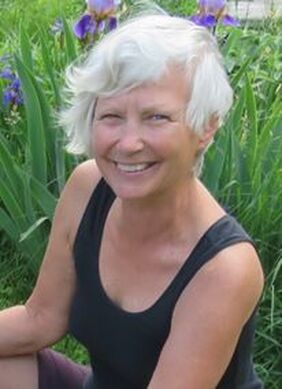
Kathyrn is currently the Chair of the Bonnechere River Watershed Project, a volunteer-based, not-for-profit organization aiming to influence and inform environmental stewardship and enhancement throughout the Bonnechere River watershed, a tributary of the Ottawa River.
Professionally, she has been a wildlife research ecologist with Environment Canada since 1986. She completed a PhD in Biology from Carleton and has been an Adjunct Research Professor in Biology and in Geography and Environmental Studies up to 2023 and a co-Director (emeritus) of the Geomatics and Landscape Ecology Research Lab built with funding from the Canada Foundation for Innovation. She has been involved in future scenario and ecological risk assessment studies at local to national scales in Canada, the USA and Panama to understand effects of land cover and land use (particularly agriculture and urbanization) on wildlife, water, and people, and to explore approaches for incorporating nature conservation into land-use policy, planning and decision-making. Her graduate students have worked on habitat suitability modeling for wildlife, effects of landscape structure on farmland biodiversity, and systematic assessment for wildlife conservation both now and under a climate change future.
Professionally, she has been a wildlife research ecologist with Environment Canada since 1986. She completed a PhD in Biology from Carleton and has been an Adjunct Research Professor in Biology and in Geography and Environmental Studies up to 2023 and a co-Director (emeritus) of the Geomatics and Landscape Ecology Research Lab built with funding from the Canada Foundation for Innovation. She has been involved in future scenario and ecological risk assessment studies at local to national scales in Canada, the USA and Panama to understand effects of land cover and land use (particularly agriculture and urbanization) on wildlife, water, and people, and to explore approaches for incorporating nature conservation into land-use policy, planning and decision-making. Her graduate students have worked on habitat suitability modeling for wildlife, effects of landscape structure on farmland biodiversity, and systematic assessment for wildlife conservation both now and under a climate change future.
